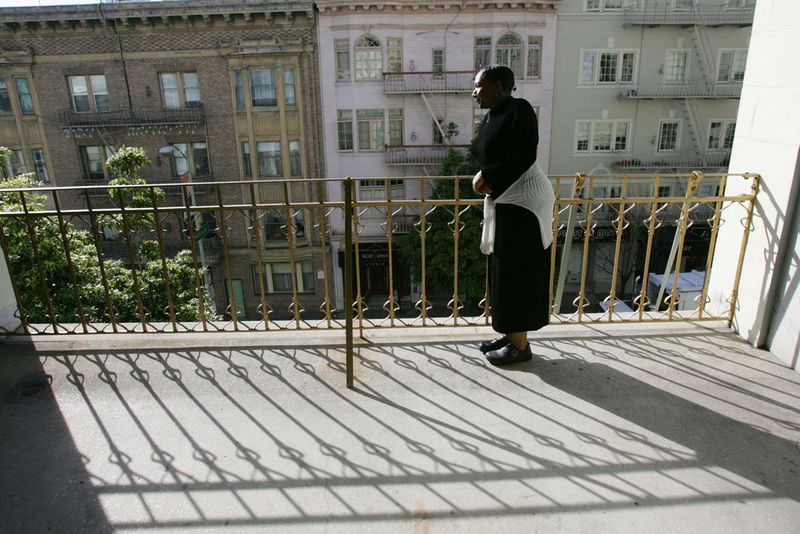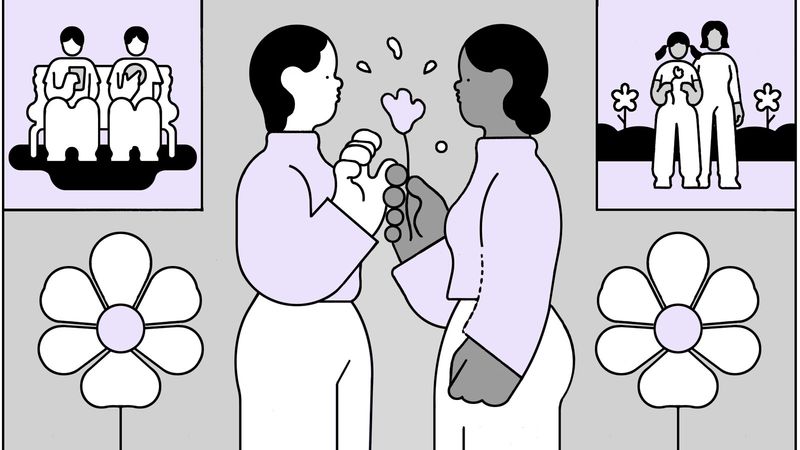Some people really do have a village—they’ve got parents who answer the phone three rings in, siblings who Netflix-binge with them post-breakup, aunts, uncles, cousins who all feel like home. But then there’s the other camp: the ones who’ve learned to build shelter from scratch.
For us, there’s no built-in rescue squad or guaranteed shoulder to cry on. Maybe there was loss, or people who never showed up, or just an empty space where connection should’ve been.
This shapes everything: how you ask for help (or don’t), how you celebrate, and even how you hold yourself together when the world expects you to have a family on speed dial. It doesn’t make you less. In fact, it forges resilience you can’t fake.
Here are 18 traits that show up in people who’ve done life without a safety net—and why none of them are anything to apologize for.
1. Defaulting to Independence—Even When Overwhelmed
Ever noticed how some folks just handle everything—even when they’re clearly running on fumes? That’s the default setting for people who’ve never had a 24/7 support line.
For them, asking for help feels like speaking a foreign language. If you’re used to no one picking up when you call, eventually you learn to do it all. Even in moments when life feels heavy, there’s this stubborn drive to figure it out solo.
It’s not bravado, it’s survival mode—a muscle that built up over years. Independence isn’t just a preference; it’s a reflex. And on the outside, it can look like strength. Internally though, it can feel like drowning with a smile.
2. Loyalty to Chosen Family Runs Deep
When you don’t have a blood family to lean on, you get really good at building your own. Friendships aren’t just casual—they’re sacred.
Anyone who’s earned a spot in your circle knows it’s a big deal. You show up with casseroles, inside jokes, and the kind of loyalty that people write songs about. There’s a fierceness to the way you love your chosen people, because you know what it’s like to be without.
More than just a friend, you become the honorary sister, emergency contact, and group therapist. The bonds go beyond social plans—they’re lifelines you grow on purpose, and you’d defend them with everything you’ve got.
3. Guilt Hitches a Ride with Generosity
Someone offers to help—carry your groceries, pay for coffee, check in on you—and your first instinct is to shrink. If you’ve managed on your own for a long time, generosity can feel suspicious, even guilt-inducing.
You want to say thank you, but there’s a little voice asking if you really deserve it. It’s not ungratefulness; it’s unfamiliar ground.
The hardest part isn’t giving—it’s receiving without feeling like you owe someone a favor in return. Accepting kindness becomes a skill you practice, one awkward smile at a time. The learning curve is real, but so is the gratitude beneath the discomfort.
4. Reading the Room Is Almost a Superpower
Growing up without a safety net sharpens your senses in ways most people don’t notice. You become a pro at reading moods, catching the subtext, and noticing who’s safe (and who’s not).
It’s like emotional radar you can’t turn off. You scan faces, pick up on tone changes, and rarely get blindsided by shifting dynamics.
This superpower started as a survival tool—because reading people was sometimes the only way to protect yourself. Now, it can make you the person friends come to for advice. You see what others miss, often before anyone else catches on.
5. Milestones Bring Bittersweet Feelings
Graduation caps flying, wedding dances, new jobs—these moments are supposed to be shared. But when the usual cheerleaders are missing, every celebration is layered.
People might see the Instagram post, but few see the ache underneath. There’s joy, but also a little grief woven in, for the faces not in the photos or the calls that never come.
You get skilled at celebrating yourself, sometimes even overcompensating with balloons, cake, and well-timed humor. But every so often, that longing sneaks in. No matter how many friends gather, it’s not quite the same as family.
6. Quick to Self-Criticize, Slow to Self-Praise
Mess up at work? You take all the blame. Score a win? You question if you really earned it. That’s life when you’ve grown up without unconditional backup.
Instead of a cheer squad, you’re your own harshest critic. It’s easier to believe you messed up than to genuinely celebrate yourself.
Self-doubt becomes the default, even on days you absolutely crushed it. Praising yourself feels awkward, but criticizing yourself? That feels familiar—almost comfortable. The journey to kinder self-talk is long, but every step counts.
7. Structure Is Survival—Control Becomes Comfort
Schedules, bullet journals, to-do lists—you name it, they’ve got it. When life is unpredictable, structure is the anchor.
There’s comfort in planning when you’ve had to be your own safety net. If nobody’s there to catch you, you learn to pad the fall with backup plans.
It’s not about being controlling; it’s about feeling safe. Order helps calm the chaos, and sometimes, checking boxes is how you keep from spiraling. Control isn’t a flaw here; it’s a shield.
8. Loyalty Is a Promise, Not a Fluke
You know what it feels like when people walk away, so if you let someone in, you mean it. Loyalty isn’t just a word—it’s a promise you keep.
When you say you’ll be there, you show up—no excuses, no flaking. You expect the same, but you never assume it’ll happen. That’s why your trust feels like gold.
People notice. They might not always understand, but your loyalty stands out. If you’re in someone’s circle, it’s because you’ve chosen them, and you’ll fight for that connection every single time.
9. Wrestling with the Idea of Deserving Love
Love that comes without strings? That’s a tough concept for someone who’s only ever had to earn it.
Even when kindness is real, you might find yourself pulling back, wondering if you really deserve it. Intimacy feels both magnetic and scary at the same time.
It’s not coldness; it’s old wiring from a life where affection wasn’t guaranteed. Learning to accept love as something that just is—not something you have to hustle for—is an ongoing lesson. But every time you let it in, you rewrite the rules a little.
10. Suspicious of Kindness That Comes Easy
Ever get a compliment and immediately suspect there’s a catch? When people are consistent and generous just because, it can throw you off.
The world taught you that nothing’s free—not even warmth. So when someone keeps showing up, you wonder if it’s too good to be true.
It takes a while for your guard to drop. But with each genuine gesture, the wall gets a little lower. Trust comes in small doses, and that’s okay.
11. Resourcefulness Is Their Middle Name
Broken sink? Car won’t start? They don’t panic. Years without built-in backup teach you to become your own solution.
Need a plan for anything? They’ve got three. If there’s a problem, they’re already Googling answers and watching tutorials.
Resourcefulness isn’t just second nature—it’s a necessity. You learn early that help isn’t always coming, so you figure it out. It’s not glamorous, but it’s empowering in its own scrappy way.
12. Over-Functioning in Relationships—Caretaker Mode Activated
When you’re used to managing alone, you tend to take the reins everywhere—even when no one asks you to. In relationships, this means you often slide into caretaker mode.
You show love by doing: checking in, problem-solving, making sure everyone’s okay. It’s sweet, but sometimes it tips into overdoing it.
This pattern comes from a place of love, but also habit. Being needed feels comfortable, while asking for help? Still a work in progress.
13. Surprised by Small Acts of Kindness
Someone remembers your favorite snack? Sends a text to check in? It lands like a small miracle. You notice every little act, because you know the difference it makes.
Kindness isn’t something you take for granted. For you, it always feels significant, no matter how tiny the gesture.
Even if you don’t always know how to respond, you remember these moments long after they’re over. They stick with you, as proof that good people exist—even if family wasn’t one of them.
14. Pain Disguised Behind a Polished Exterior
Ask how she’s doing, and she’ll tell you she’s fine—even if she’s falling apart inside. Mastering the art of hiding pain starts young when comfort is rare.
You perfect the look: pulled-together, smiling, maybe even thriving. But beneath the surface, storms rage quietly.
It’s not about pretending; it’s about surviving. Sharing your struggles doesn’t come easy, but sometimes, just holding it together is a win on its own.
15. Feeling Like an Outsider Around Family Talk
Group chat blowing up with family stories? Suddenly, you’re quiet. Conversations about parents, siblings, or big family holidays make you feel like you’re on the outside looking in.
It’s not envy; it’s an ache. There’s a longing for something you’ve never had, and it can make these moments feel isolating.
You become a pro at changing the subject or laughing along. But sometimes, you just wish you had a relatable story to add. The ache is quiet, but real.
16. Craving Stability, But Second-Guessing When It Arrives
Longing for calm isn’t the hard part; it’s trusting it when it finally shows up. Years of ups and downs make even healthy stability feel strange.
You might find yourself scanning for signs that it’s all about to unravel. Good things can make you uneasy, because you’re used to bracing for impact.
Wanting to settle down with someone or somewhere is a big dream—but letting yourself relax into it is the real challenge. With time, you learn that some good things stay. It just takes a little faith.
17. Home Is Something You Create, Not Inherit
For some, home is a person—or a house filled with familiar voices. For you, it’s whatever you build with your own hands, energy, and intention.
Maybe it’s a cozy studio with thrifted decor, or a tiny ritual like lighting a candle every night. Home becomes something you create from scratch, piece by piece.
It’s not always easy, but it’s yours. The sense of belonging doesn’t come automatically—it’s something you chase and shape with love.
18. Strength Born Out of Necessity, Not Choice
People call you strong, but the truth is, strength wasn’t optional. It was built one hard day at a time, out of necessity.
You learned to carry the weight—emotionally and physically—because there was no one else to do it. That kind of strength looks heroic from the outside, but it’s often a mask for how much you’ve carried.
Real talk: even the strongest need softness. You’re still learning that it’s okay to want comfort, not just grit. And that’s a win worth celebrating.



















